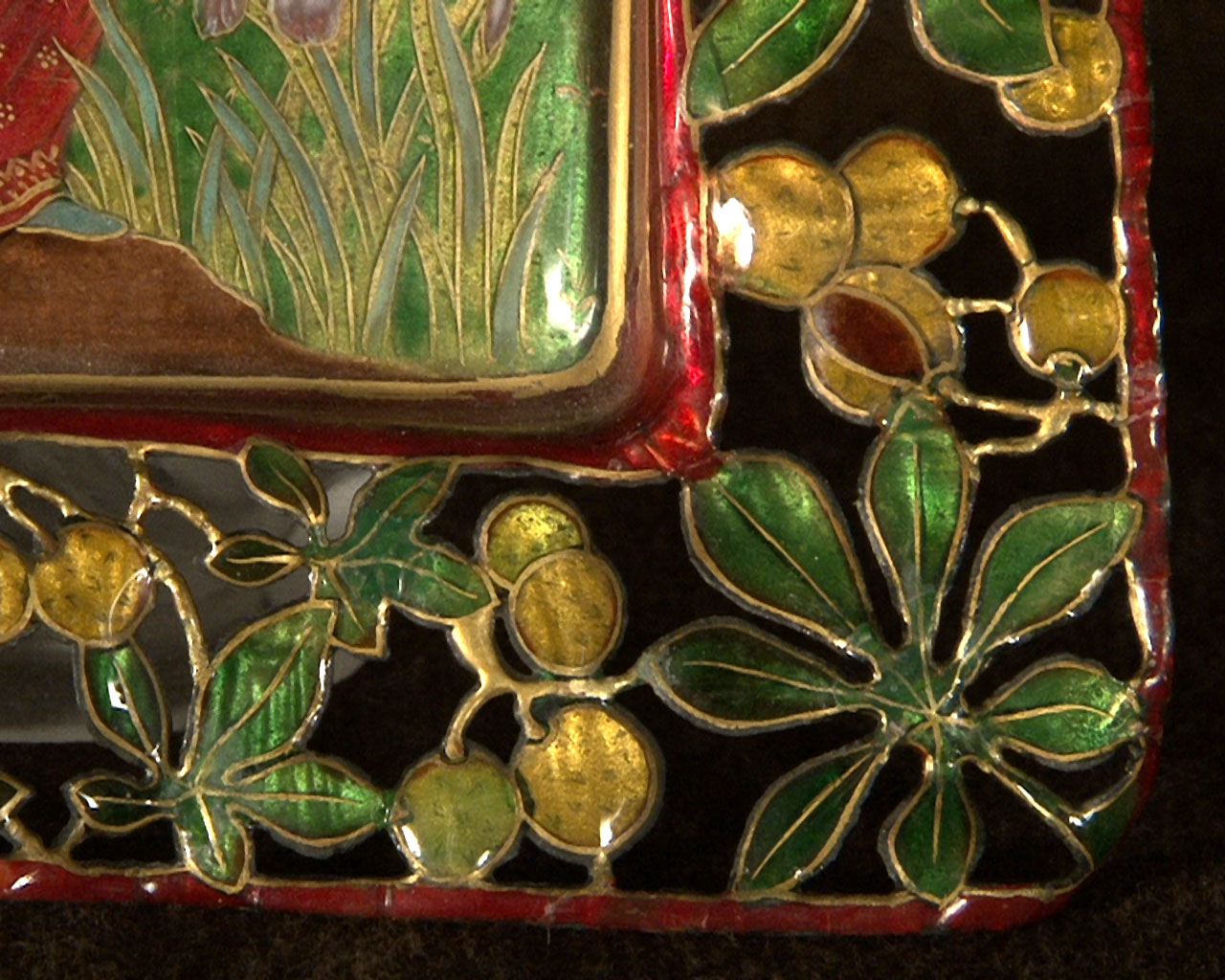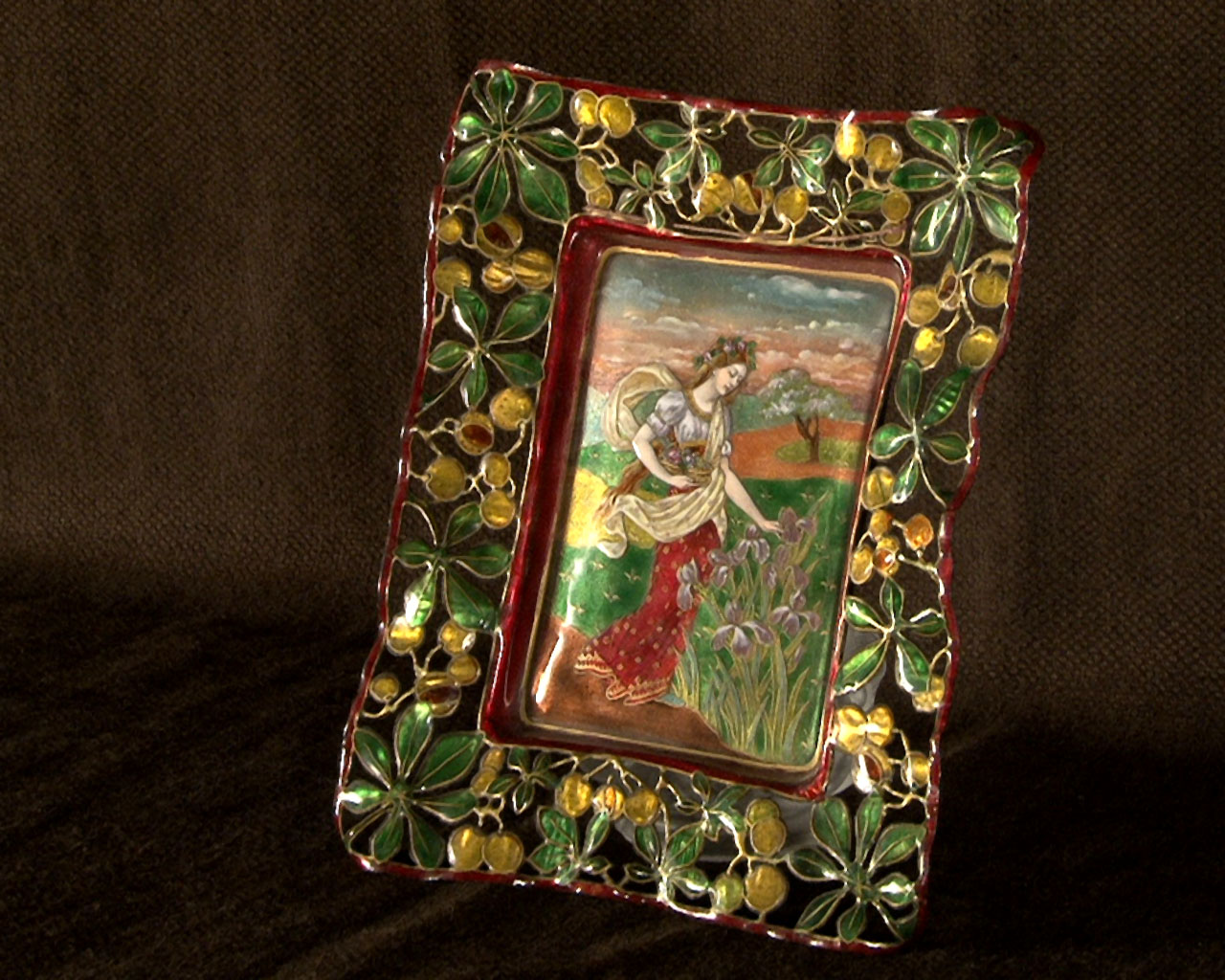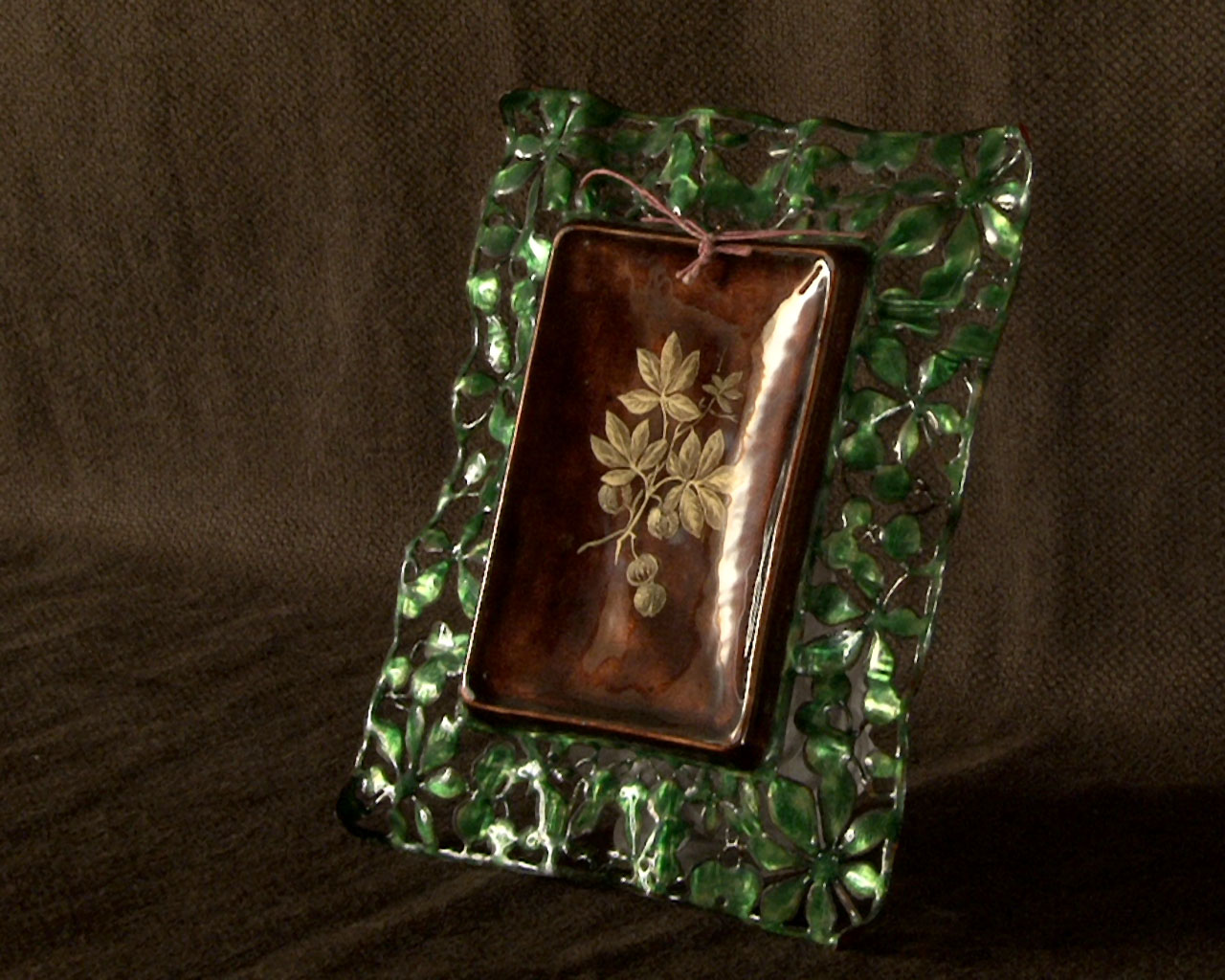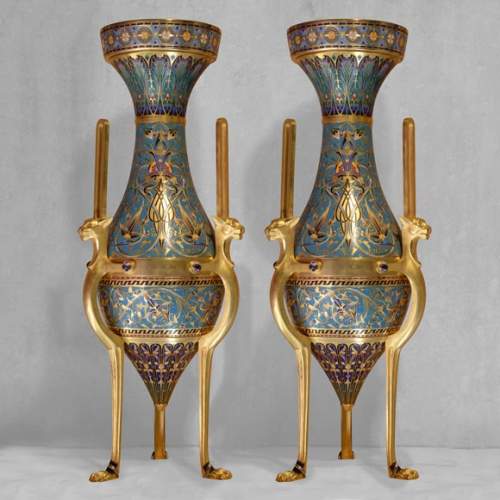Style Napoleon III / Ref.03134
Theophile Soyer "The Spring"
Dimensions
Width 6'' ¼ 16cm
Height 7'' ½ 19cm
Origin:
Acquired from the Soyer family. Circa 1880.
Monogram : 'TS'.
Status:
Perfect condition
Polychrome enamel and translucent enamel painted on copper.
Monogrammed “T.S.”.
Circa 1880
H: 19cm ; W: 15,5cm.
A young woman with long golden hair crowned with a garland of flowers, a basket of flowers under her arm, picks an iris. She seems a representation of Flora the mythological goddess of the season of Spring. The landscape shows an Oriental influence by the use of the juxtaposition of blocks of solid colors, the sense of depth rendered solely by curved lines. The artist's taste for the arabesque is seen in the undulating shape of the young woman’s body, the wave of her white scarf and the locks of her hair. The mannerism of these arabesques and solid color blocks is in sharp contrast to the more classical rendering of the face and arms and the naturalism of the iris.
The virtuosity of technique and the use of translucent enamel, through which the metal below appears, are exceptional. These processes enhance the vibrancy of the colors. The brightness of the enamel is more vibrant still on the frame, adding volume to the fruit and liveliness to the leaves, circled with metal and cut out to create a lace-like effect.
Collaborative work of enameler Theophile Soyer and decorative artist Eugene Grasset, inspired by the design of a glass roof called “Spring” preserved at the Musée des Arts Décoratifs in Paris (Inv. 8003). It was presented along with “Fall Afternoon” in the architecture section of the Salon du Champs de Mars in 1894. In the same manner that this piece required a collaboration, Eugene Grasset, worked with master glassmaker Felix Gaudin to make the glass roof. The stained glass representation is more graphic with dark lines separating the different shades of glass and more pastel colors, while the enamel version has softer lines and curves, deeper nuances of color. It is clear that although Eugene Grasset did the drawing in both cases Theophile Soyer showed signs of independant creativity.
Eugene Grasset was born in Lausanne, Switzerland, in 1845. The son of a cabinet designer/maker and sculptor, in 1861, he entered the Polytechnicum in Zurich to study architecture. He moved to Paris in 1871 where he designed furniture fabrics and tapestries as well as ceramics and jewelry. He befriended Charles Gillot a pioneer in photogravure and great admirer of Japan, for whom he designed a dining room set preserved at the Musée des Arts Décoratifs in Paris. In 1877, Eugène Grasset turned to graphic design, however, it was poster art that quickly became his forté. Some of his works became part of the Maîtres de l'Affiche including his lithograph, 'Jeanne d'Arc Sarah Bernhardt.' In 1890, he designed the 'Semeuse' logo used by the dictionary publishers, Éditions Larousse.
For more information on this work, see the video on MarcMaison.art.
Informations
Price: on request
Recommended for you :
Dimensions:
Width: 32
Height: 32
Dimensions:
Width: 40
Height: 58
Depth: 4
Dimensions:
Width: 56
Height: 69
Dimensions:
Width: 48
Height: 58
Dimensions:
Width: 16
Height: 27
Depth: 11
Dimensions:
Height: 3
Diameter: 41
Dimensions:
Width: 100
Height: 52
Dimensions:
Height: 116
Diameter: 48
Dimensions:
Diameter: 60






























